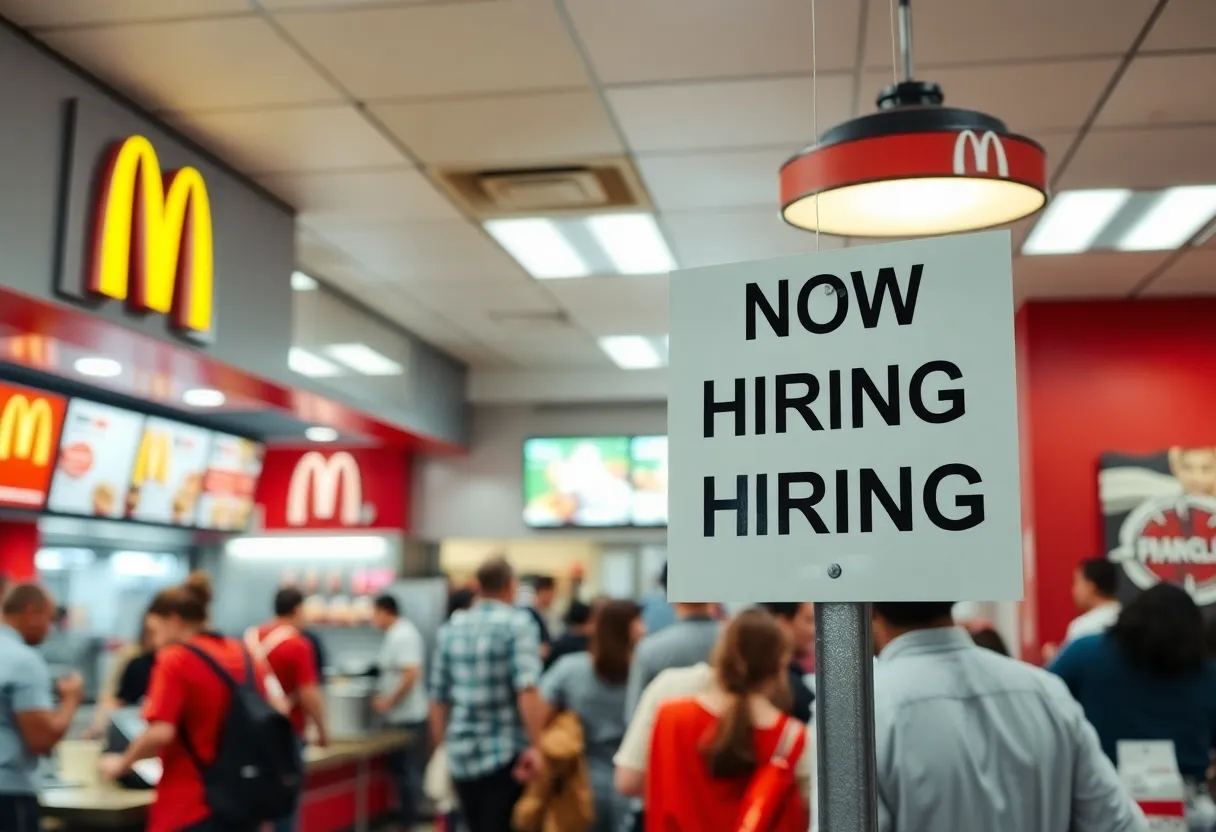News Summary
A new study reveals California’s recent $20 minimum wage increase for fast-food workers resulted in a loss of approximately 18,000 jobs, a 3.2% decline in employment. The legislation, part of California Assembly Bill 1228, aimed to improve conditions for workers but has sparked debate over its economic impacts. Critics argue that higher labor costs could hinder job availability in the fast-food industry, while advocates highlight increased wages for workers. Ongoing discussions suggest the full impact of the wage hike on employment and the economy will take time to assess.
California’s recent hike in the minimum wage for fast-food workers has led to a significant decline in jobs within that sector, according to a new study from the National Bureau of Economic Research (NBER). Since the implementation of the $20 minimum wage in April 2024, the fast-food industry in California has witnessed a loss of approximately 18,000 jobs. This figure represents a notable 3.2% decrease in employment when compared to similar sectors across the nation.
The researchers—Jeffrey Clemens, Olivia Edwards, and Jonathan Meer—analyzed employment trends post the wage hike and concluded that if the minimum wage had not been elevated, many of these positions would still be filled. The findings indicate that while California’s fast-food employment contracted, other regions in the United States experienced a modest increase of around 0.10% in fast-food jobs.
The minimum wage increase stemmed from California Assembly Bill 1228, which was passed in September 2023. This legislation empowered the newly formed Fast Food Council to determine minimum wage levels for fast-food workers in the state. The increase from a previous wage of $16 an hour took effect on April 1, 2024, and was seen as a groundbreaking move toward improving the livelihoods of fast-food workers by advocates.
However, the ramifications have sparked a debate on the economic viability of such wage increases. In the months following the law’s enactment, the fast-food sector in California experienced employment declines ranging between 2.3% and 3.9%. Prior to this legislation, California’s fast-food workforce was growing at a rate comparable to the national average.
Critics of the wage hike argue that such increases can have adverse effects on employment opportunities, pointing to historical instances where wage controls have not delivered the expected economic benefits. They suggest that the rapid rise in labor costs could force some fast-food establishments to reduce staffing levels to remain operationally viable.
Despite the negative employment outcomes highlighted in the NBER study, California Governor Gavin Newsom has supported the minimum wage law, framing it as a progressive step towards fair labor practices and improved economic conditions for fast-food workers. However, his administration has contested the study’s findings, suggesting that the NBER’s research is affiliated with a think tank criticized for bias in its reporting.
To counter claims of job loss, a separate analysis conducted by a professor at UC Berkeley found that workers subject to the new wage law experienced wage increases of 8-9%, with no significant employment impacts observed among non-covered workers. Additionally, the report noted that menu prices at fast-food establishments only increased by an average of 1.5% following the wage increase, suggesting that the economic environment had adapted relatively well to the new wage standards.
The impact of AB 1228 is further nuanced by a provision that excludes small fast-food chains with fewer than 60 outlets from the wage increase mandate. This exclusion could potentially mitigate the overall effects seen in the fast-food industry across California.
Following the wage adjustments, reports have indicated that the median number of weekly hours worked by fast-food employees has also dropped, which translates into notable losses in annual income for many individuals reliant on these positions.
In a broader context, while employment trends in California’s economy have remained consistent with national patterns, the fast-food sector’s response has diverged sharply. The contrasting data reflects challenges that the industry faces amidst significant regulatory changes aimed at improving worker compensation.
As California continues to navigate the complexities of labor laws and economic growth, the ramifications of the $20 minimum wage remain a pivotal point of discussion among economists, policymakers, and labor advocates alike. The full impact of this wage adjustment on different sectors and the overall economy may take more time to fully materialize and assess.
Deeper Dive: News & Info About This Topic
- Fox Business: Minimum Wage Hike Cost California 18,000 Jobs
- USA Today: Minimum Wage Increase July 1, 2025
- Reason: California’s Minimum Wage Hike Cost 18,000 Fast Food Jobs
- Wall Street Journal: California’s Minimum Wage Impact on Jobs
- Wikipedia: Minimum Wage

Author: STAFF HERE BEVERLY HILLS WRITER
The Beverly Hills Staff Writer represents the experienced team at HEREBeverlyHills.com, your go-to source for actionable local news and information in Beverly Hills, Los Angeles County, and beyond. Specializing in "news you can use," we cover essential topics like product reviews for personal and business needs, local business directories, politics, real estate trends, neighborhood insights, and state news affecting the area—with deep expertise drawn from years of dedicated reporting and strong community input, including local press releases and business updates. We deliver top reporting on high-value events such as the Rodeo Drive Concours d'Elegance, the Beverly Hills artSHOW, Concerts on Canon, and holiday celebrations throughout the city. Our coverage extends to key organizations like the Beverly Hills Chamber of Commerce and Visit Beverly Hills, plus leading businesses in luxury fashion, hospitality, and entertainment that drive the local economy. As part of the broader HERE network, including HERELosAngeles.com, HERESantaAna.com, HEREHuntingtonBeach.com, and HERECostaMesa.com, we provide comprehensive, credible insights into Southern California's dynamic landscape.




